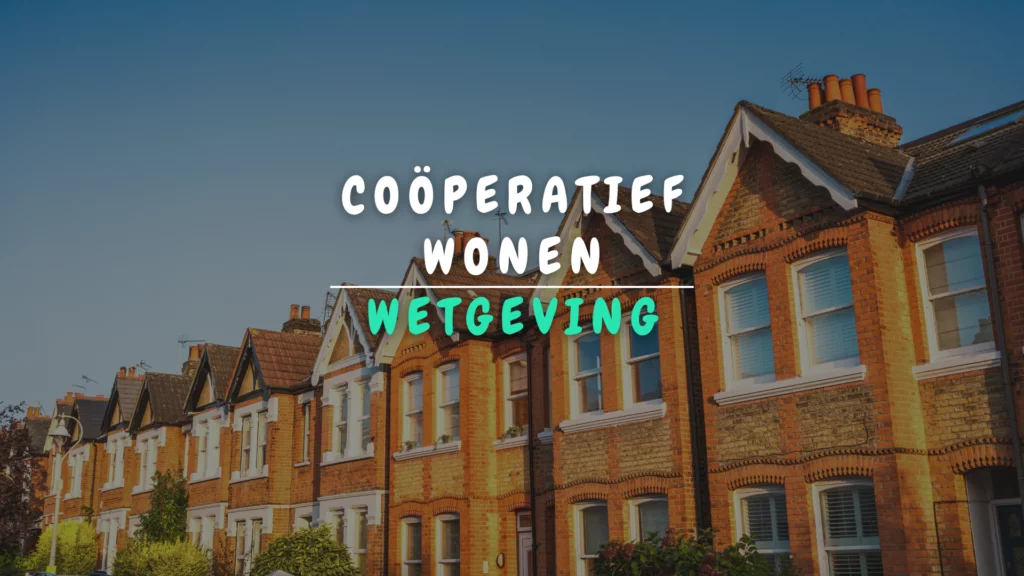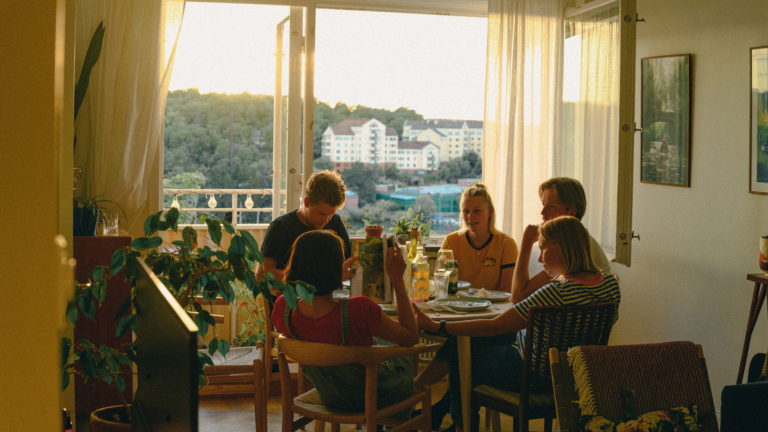Imagine a living environment where neighbors not only live side by side, but also build a close-knit community together. Cooperative living makes this dream a reality, where the boundaries between tenants and owners blur and solidarity reigns supreme. Are you already familiar with this exciting and socially driven form of living?
What is cooperative living?
Cooperative living sits between renting and buying. You rent a home from a cooperative, but must first buy shares in that housing cooperative. So you are not a direct owner of the home. You are an indirect co-owner of all the homes in that housing cooperative. You are a cooperator. So cooperative – or collaboration – does take center stage here.
The number of shares and the price per share differ for each housing cooperative. This is specified in the statutes of the company (housing cooperative).
So, as a resident, you invest in a share of a housing (complex). In exchange for that share, you receive a lifelong “right to live. This means that you can occupy a home owned by the cooperative for a certain monthly fee.
The burden is shared. Those with less budget buy fewer shares, but pay more monthly fees. So those who contribute more capital receive a monthly discount. The cooperators actually pay a kind of rent to themselves.
What is a housing cooperative?
A housing cooperative is a type of team of people who live together in a building, such as an apartment complex or a row house. Instead of one person or company owning the building, all the people on the team own it together. They work together to decide what the building looks like, how it is maintained and how much rent they pay if it is a rental property. The idea is that people in a housing cooperative work together to make sure everyone has a nice place to live, at affordable prices, and that the building is well maintained. It is made official by government rules and laws. For example, you make the formation of a housing cooperative official in a notarized deed. This deed outlines its operation. So: a housing cooperative acquires property, regulates the construction and/or renovation, maintenance and management of all buildings. If you bought shares, you also have a say in these matters.
What does the legislation say?
Establishment of a cooperative society
Before you want to set up a cooperative society, you must record it in a notarized deed. The articles of incorporation are essential to this deed. These bylaws lay down the broad outlines. Enlist the help of your notary for advice.
The lease
In Flanders, the rental agreement is governed entirely by the regulations of the Flemish Housing Decree. The cooperative is the landlord and the cooperant is the tenant.
At the start of the lease, the housing cooperative and cooperator together choose the rent (freely determined). Afterwards, the cooperative may only adjust the rent according to the rules of legal rent indexation.
Notice:
- A cooperator may not sublet the property unless the landlord (cooperative) agrees.
- A cooperator may not transfer the property unilaterally (via gift or inheritance).
- The cooperative may rent the property to a housing company, which in turn sublets the property.
- It is prohibited to add a clause to the lease that the resident must remain a cooperator as long as he/she rents a property from the cooperative.

What does that cost?
Cooperative living is not necessarily cheaper than renting or buying a home. It eliminates many costs such as notary fees, registration fees, real estate offices….
There is usually no rent guarantee, since you are cooperator and bought shares.
In cooperative living, everyone decides for themselves how much of your own input you do in the project.
Usually the rent is just slightly higher than the amount to cover costs. This is so that the cooperative can spend the extra amount on future investments or unforeseen expenses/costs.
What are the benefits of cooperative living?
- Self-governance: Each member has a say in decisions regarding the building.
- Lower costs: The cooperative does not have profit as its primary goal and offers affordable housing.
- Social: Because of the cooperation within the cooperative, you know your co-owners and .
- Community spirit: Members work together to make decisions and achieve the same goals. This leads to a strong bond within the cooperative.
What are the drawbacks?
- Limited control: As an individual, you sometimes have little say within the cooperative and often have to compromise.
- Financial obligation: As a cooperator, you are often jointly responsible for maintenance costs, repairs, renovations and investments.
- Dependence: You are dependent on the efficiency and effectiveness of the cooperative. In addition, it is not easy to leave a housing cooperative if you own a large share.

The pioneers
As of 2022, there are 5 projects in Flanders doing cooperative living. They receive customized guidance.
- The Arena neighborhood in Deurne
- Large family homes in Ghent
- Heritage homes at the Beguinage in Lier
- The town hall site in Kampenhout
- The site of the former social house in Aartrijke
Currently, the government is still researching this form of housing. Read all about the learning trajectory here. This track will run through the end of 2024.
Good to know
- Apply for a Flemish rent guarantee loan from the Flemish Housing Fund (if your cooperative requests a rent guarantee).
- Apply for a Flemish rent subsidy or monthly rent allowance if you have been waiting four years or more for social housing.
- Do you want to perform works on an independent home? The housing cooperative can apply for MyConstruction Loan for the works.
- Overdue payment? Appeal to the Fund to Fight Evictions (Flanders).
- Surf to wooncoop.be for more information about cooperative living or if you want to participate yourself.

Would you like to cite this article as a source? Then use:
Deferm, S. (2024, March 20). Cooperative living: the legislation. Apartment.be. Consulted on (date XX/XX/202X), from https://www.appartement.be/cooperatief-wonen-wetgeving






